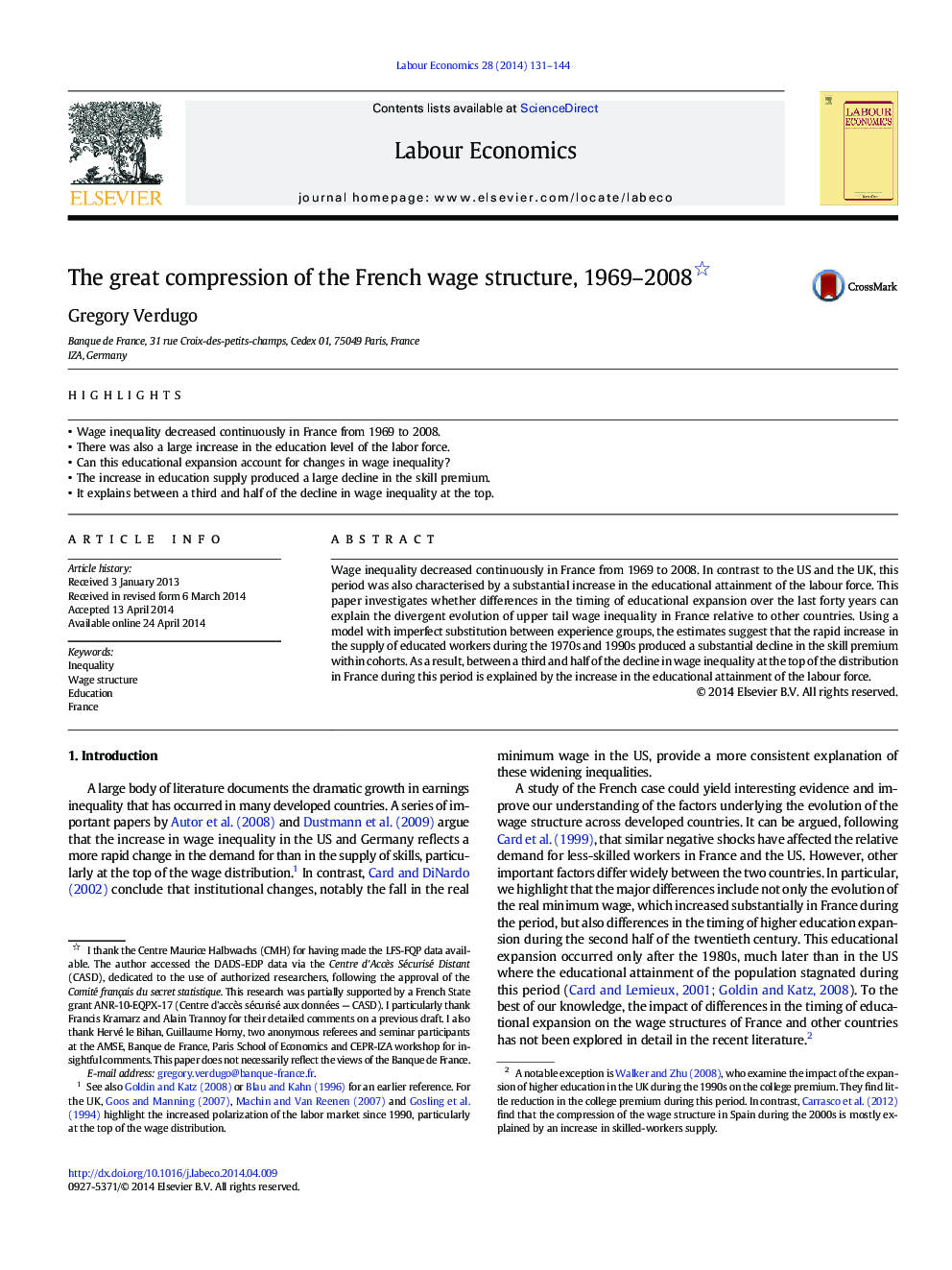| Article ID | Journal | Published Year | Pages | File Type |
|---|---|---|---|---|
| 971483 | Labour Economics | 2014 | 14 Pages |
•Wage inequality decreased continuously in France from 1969 to 2008.•There was also a large increase in the education level of the labor force.•Can this educational expansion account for changes in wage inequality?•The increase in education supply produced a large decline in the skill premium.•It explains between a third and half of the decline in wage inequality at the top.
Wage inequality decreased continuously in France from 1969 to 2008. In contrast to the US and the UK, this period was also characterised by a substantial increase in the educational attainment of the labour force. This paper investigates whether differences in the timing of educational expansion over the last forty years can explain the divergent evolution of upper tail wage inequality in France relative to other countries. Using a model with imperfect substitution between experience groups, the estimates suggest that the rapid increase in the supply of educated workers during the 1970s and 1990s produced a substantial decline in the skill premium within cohorts. As a result, between a third and half of the decline in wage inequality at the top of the distribution in France during this period is explained by the increase in the educational attainment of the labour force.
